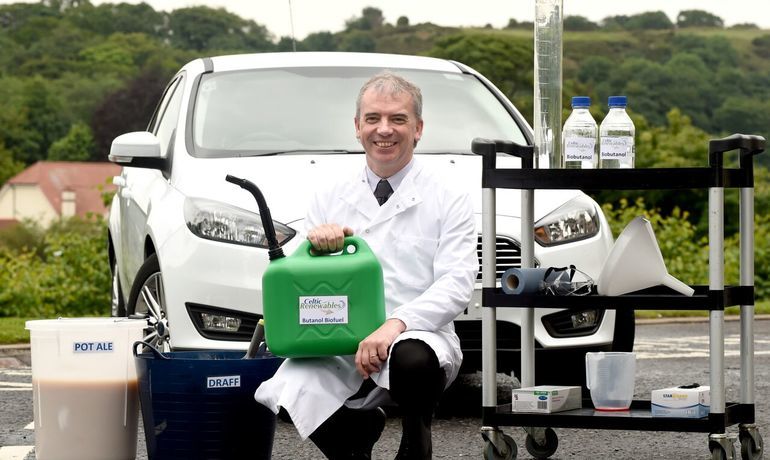
Scottish scientists are toasting their success having rolled out the world’s first car fuelled by the whisky industry.
Edinburgh based start-up Celtic Renewables Ltd came up with the neat idea to turn distillation byproducts into biofuel to power car engines.
The concept of using biofuels goes back to the first days of commercial car production – Henry Ford’s Model T ran on ethanol.
However US prohibition and the rise of the petroleum industry sounded the death knell for the progressions of alochol based biofuels – until recently when dwindling fossil fuel stocks became a a matter of international concern.
Biobutanol is an advanced and sustainable biofuel, which is a direct replacement for petrol and diesel.
The idea of running a car engine on this product is not a new one as a joint venture between supermajor BP and chemical giant DuPont pioneered its use.
But making it from the waste products of the drinks industry is a novel new take on its production.
It is produced from draff, the residue of husks after fermentation of the grain used in brewing, and pot ale, the copper-containing yeasty liquid that is left over following distillation.
Working closely with Tullibardine Distillery in Perthshire, the boozy boffins from Edinburgh Napier University, have developed the process to make renewable fuel that could replace the need for petrol and diesel.
And the dram driven car has now taken its first successful journey around Edinburgh after being trialled in a hire car – with no prior engine testing or modifications.
Professor Martin Tangney, Celtic’sfounder and president, said: “What nobody in history had done was to make this fuel from residues. Everyone else, like BP, is using crops to do this.
“Around 70% of the cost originally was the raw material and that drove it out of business. Back in its heyday in the 1960s only the drinks industry was bigger than it.
“We thought we would approach the equation from the other side, rather than looking at cost efficiency we looked at the raw materials.
“It has huge potential.”
Each year in Scotland, the malt whisky industry produces almost 750,000 tonnes of draff and 2 billion litres of pot ale.
Celtic Renewables plans to put these to good use by converting them into millions of litres of biofuel.
Tullibardine distillery manager John Torrance added: “Right from the outset when Celtic Renewables approached us we could see the game-changing potential of a new fuel created from our by-products.
“We’re a forward thinking distillery and we’re happy to support what promises to be a groundbreaking first for renewable energy, for transport and for the Scottish whisky industry alike.”
The Edinburgh-based company recently received £9 million funding support from the Scottish Government as co-investment to build a commercial demonstrator plant in Grangemouth with commissioning due in 2018.
The Celtic Renewables process, that uses bacterial fermentation to produce biobutanol, was originally devised in the UK at the start of the last century to produce acetone for explosives used in the First World War.
Rosemary Gallagher, of the Scotch Whisky Association, said: “It’s great to see such innovation in the use of Scotch Whisky by-products as it advances the whole industry’s commitment to sustainability and the environment.
“This initiative is one of many projects furthering our green ambitions, from restoring oyster reefs to sustainable sourcing of casks to wetlands and beehives on distillery sites.”
Recommended for you
